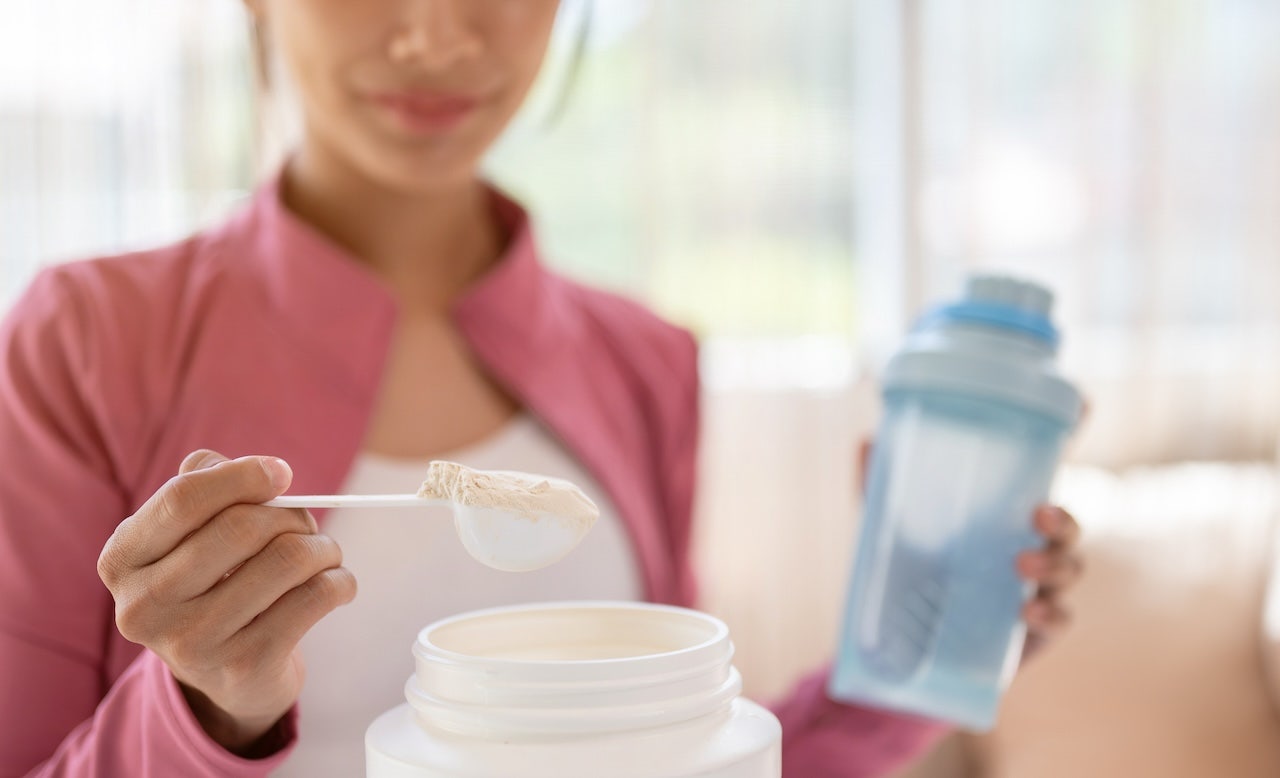It took them all these years to figure it out? Big Supplement companies are not going to be happy.
Sports supplement shown to ‘not make any difference’ at regular doses, researchers say
Creatine is a popular supplement used to help build muscle, but researchers in Australia are questioning its effectiveness.
Investigators from the University of New South Wales (UNSW) in Sydney found that individuals who took creatine while performing a three-month weightlifting regimen put on the same amount of muscle as those who did not take the supplement while lifting.
That’s according to their recent study, which was published in the journal Nutrients.
"We’ve shown that taking 5 grams of creatine supplement per day does not make any difference to the amount of lean muscle mass people put on while resistance training," senior author Mandy Hagstrom, PhD, an exercise scientist from UNSW’s School of Health Sciences, said in a news release about the study.
The clinical trial looked at 54 relatively healthy participants ranging from 18 to 50 years old who were divided into two groups.
Both groups completed the same 12-week resistance training, comprised of three supervised workouts a week.
The creatine group took the supplement one week prior to beginning the training regimen, referred to as a "wash-in," and continued taking the 5-gram dose each day for a total of 13 weeks while performing the exercise routine.
The control group received no creatine or placebo during the workout period.
"This is the first creatine study to utilize a wash-in phase, which is standard in other clinical trial designs," Hagstrom told Fox News Digital.
"This allows the effect of the creatine supplement to be separated from the effect of resistance training."
Previous trials have started supplementation and exercise programs on the same day, she noted, which made it difficult to determine the impact of each.
The researchers looked at lean muscle body mass in both groups at baseline, then after the seven-day wash-in and after completion of the 12-week weight-lifting program.
They used "dual-energy X-ray absorptiometry" — which is a non-invasive imaging technique — to measure bone mineral density and body composition.
While the creatine-supplemented group (particularly the women) showed about a one-pound gain in lean body mass compared to the non-supplemented group at the seven-day mark, both groups showed a 4.4-pound gain after performing the 12-week resistance training program.
There was no difference between the two groups when it came to lean body mass growth, according to the study.
"The people taking the creatine supplement saw changes before they even started exercising, which leads us to believe that it wasn’t actual real muscle growth, but potentially fluid retention," Hagstrom said.
Once the participants started exercising, they saw no additional benefit from creatine, she said — "which suggests that 5 grams per day is not enough if you’re taking it for the purposes of building muscle."

 www.foxnews.com
www.foxnews.com
Sports supplement shown to ‘not make any difference’ at regular doses, researchers say
Creatine is a popular supplement used to help build muscle, but researchers in Australia are questioning its effectiveness.
Investigators from the University of New South Wales (UNSW) in Sydney found that individuals who took creatine while performing a three-month weightlifting regimen put on the same amount of muscle as those who did not take the supplement while lifting.
That’s according to their recent study, which was published in the journal Nutrients.
"We’ve shown that taking 5 grams of creatine supplement per day does not make any difference to the amount of lean muscle mass people put on while resistance training," senior author Mandy Hagstrom, PhD, an exercise scientist from UNSW’s School of Health Sciences, said in a news release about the study.
The clinical trial looked at 54 relatively healthy participants ranging from 18 to 50 years old who were divided into two groups.
Both groups completed the same 12-week resistance training, comprised of three supervised workouts a week.
The creatine group took the supplement one week prior to beginning the training regimen, referred to as a "wash-in," and continued taking the 5-gram dose each day for a total of 13 weeks while performing the exercise routine.
The control group received no creatine or placebo during the workout period.
"This is the first creatine study to utilize a wash-in phase, which is standard in other clinical trial designs," Hagstrom told Fox News Digital.
"This allows the effect of the creatine supplement to be separated from the effect of resistance training."
Previous trials have started supplementation and exercise programs on the same day, she noted, which made it difficult to determine the impact of each.
The researchers looked at lean muscle body mass in both groups at baseline, then after the seven-day wash-in and after completion of the 12-week weight-lifting program.
They used "dual-energy X-ray absorptiometry" — which is a non-invasive imaging technique — to measure bone mineral density and body composition.
While the creatine-supplemented group (particularly the women) showed about a one-pound gain in lean body mass compared to the non-supplemented group at the seven-day mark, both groups showed a 4.4-pound gain after performing the 12-week resistance training program.
There was no difference between the two groups when it came to lean body mass growth, according to the study.
"The people taking the creatine supplement saw changes before they even started exercising, which leads us to believe that it wasn’t actual real muscle growth, but potentially fluid retention," Hagstrom said.
Once the participants started exercising, they saw no additional benefit from creatine, she said — "which suggests that 5 grams per day is not enough if you’re taking it for the purposes of building muscle."

Creatine may not build more muscle after all, study suggests
The sports supplement creatine may not be effective in building muscle, according to a new study from the University of New South Wales. Researchers and exercise scientists speak about the findings.






